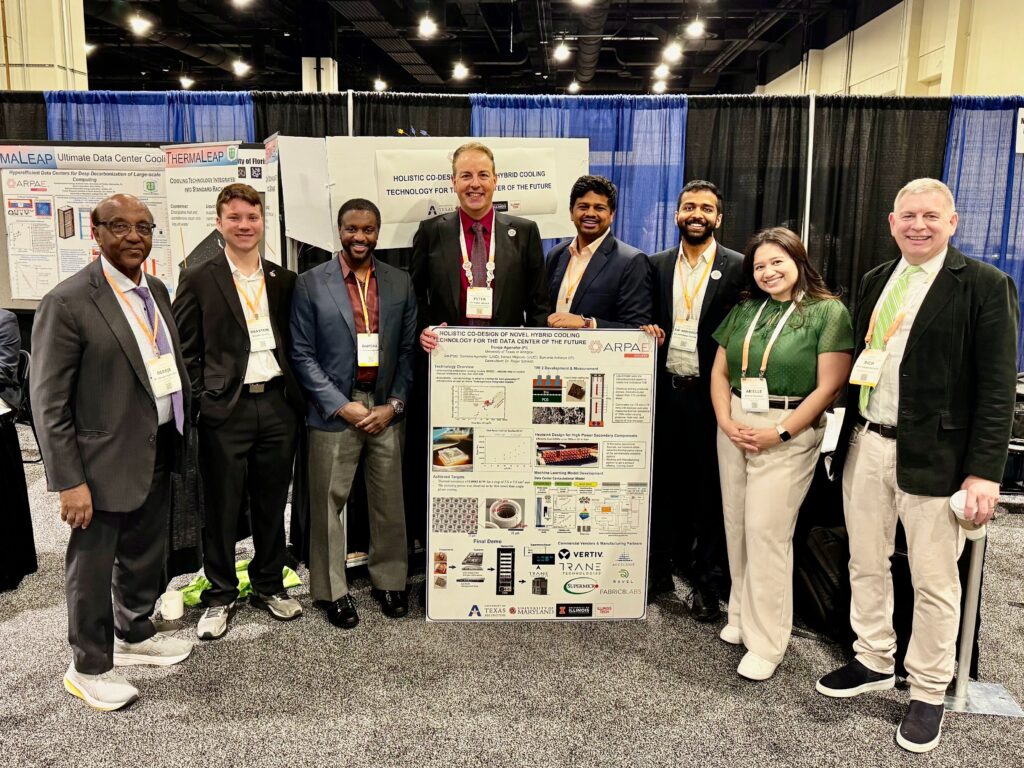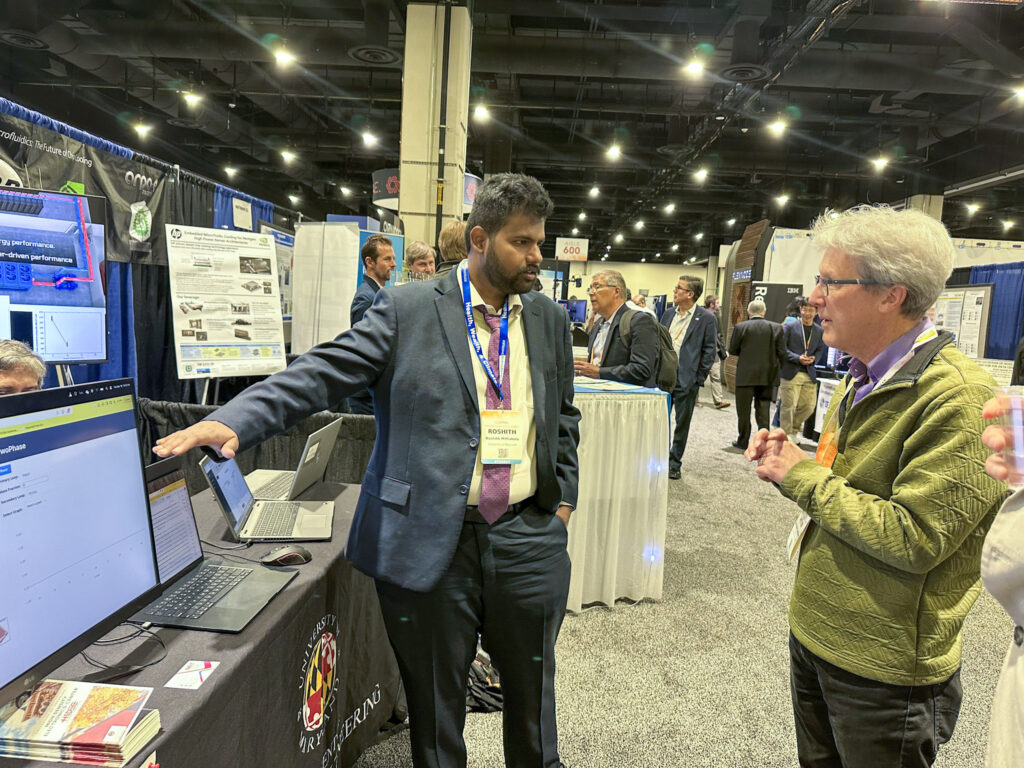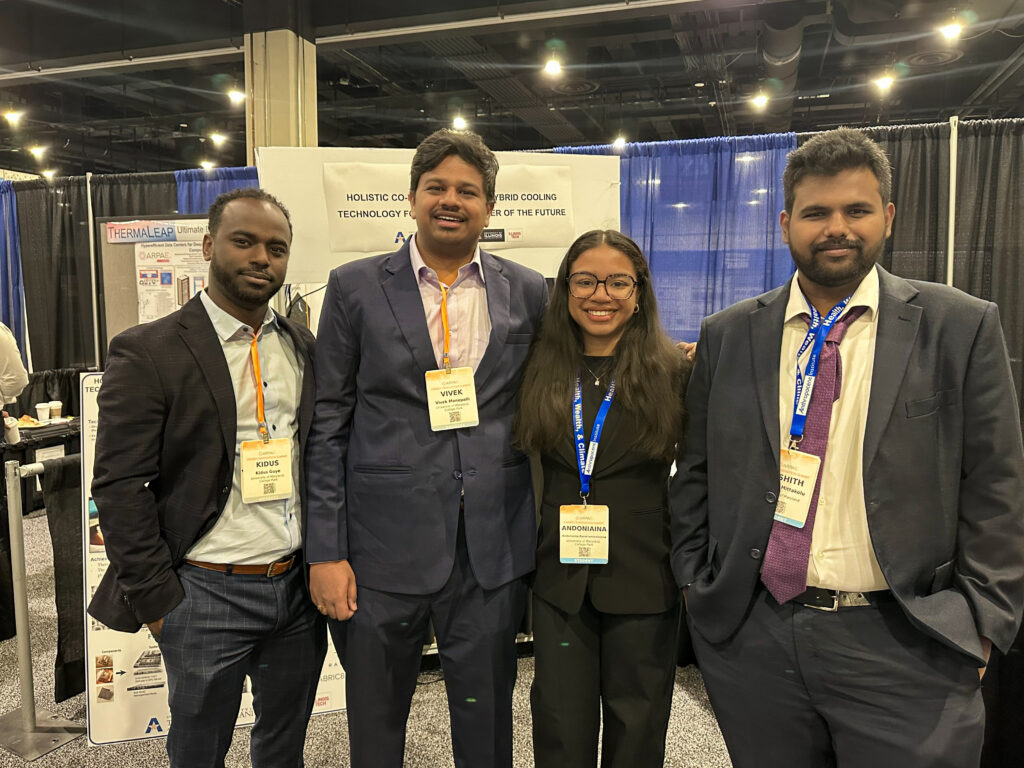
The NEIT Lab at the University of Maryland proudly participated in the 2025 ARPA-E Energy Innovation Summit in Washington, D.C., showcasing two breakthrough technologies developed under the ARPA-E COOLERCHIPS program. The Summit brought together top researchers, industry leaders, and policymakers to accelerate the commercialization of transformative energy technologies.
As part of a collaborative effort with the University of Texas at Arlington, the University of Illinois Urbana-Champaign, IIT Chicago, and Accelsius, the team presented their work on a Direct-to-Chip Evaporative Cooler (DCEC). This novel system is designed to deliver high-efficiency thermal management for next-generation high-power servers by leveraging the latent heat of evaporation directly at the chip level. The technology significantly reduces the thermal resistance between the heat source and the cooling medium, offering a path toward more compact, energy-efficient data centers. Kidus Guye and Vivek Manepalli have represented the UMD team from NEIT Lab.
The second project showcased by the NEIT Lab involves the development of an advanced digital twin software platform for data centers, also supported by ARPA-E COOLERCHIPS. As part of this effort, the NEIT team is pioneering flow network modeling tools to accurately simulate airflow, heat transport, and two-phase cooling performance in real time. These tools will be key to optimizing cooling configurations, enabling predictive maintenance, and driving down energy consumption in large-scale data center environments. Roshith Mittakolu and Mariah have represented the UMD-NEIT Lab team for this project.
Both projects underscore NEIT Lab’s leadership in sustainable electronics cooling and digital infrastructure optimization. The ARPA-E Innovation Summit provided a unique opportunity for the team to connect with stakeholders across government, academia, and industry and to highlight the lab’s contributions to the future of energy-efficient computing.


